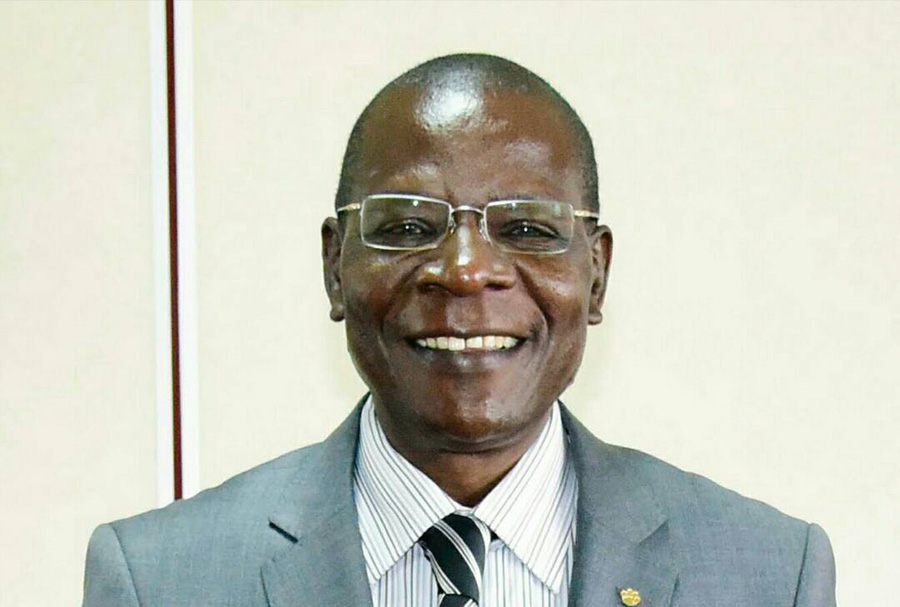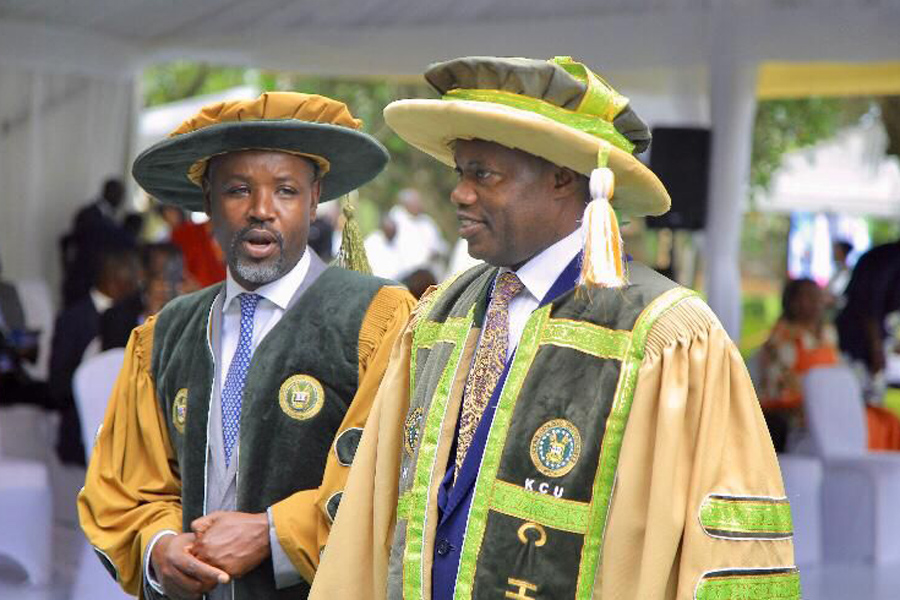Government policy on profit repatriation is draining our economy
Keep Reading

EDWARD KAFUFU BALIDDAWA
As the country grapples with insufficient tax collection, another key aspect that needs to be looked into critically and decisively is the money drain from our economy that continues to go on unabated most particularly by the Telecom companies.
Down memory lane, when the privatization of the Uganda telecommunication sector was done in early 1998, the argument made was that since Uganda’s telecommunication sector was still in its infancy stage, with very low uptake, attraction of serious investors in the sector would be an uphill task.
Therefore, when MTN came along, it enjoyed a red carpet entry to the market. While elsewhere, getting an Operator’s license attracted a very high down payment in license fees, here in Uganda, MTN only paid a paltry one time fee of US$ 200,000.
This license was to earn MTN exclusivity for 5 years in the sector. In comparison, to get an Operator’s license in Rwanda (a much smaller market by far), MTN paid US$20million, while in Nigeria it paid a whopping $285million in 2001 for one of the four GSM licenses .
We should also be reminded that at the negotiations for the license, arguments had been advanced about the small and shallow nature of the Ugandan market, which became a basis for the Operator to be given many waivers and privileges.
Most of us were however surprisingly shocked at the numbers of new connections that MTN registered on the very first day of opening business in Kampala with news reports placing the figure at over 100,000 subscribers.
The number of daily new subscriptions just kept on skyrocketing, disproving the arguments that had been advanced at the negotiating table. But one thing that this proved was that actually as a country, we have either poor, incompetent or selfish and unpatriotic negotiators.
When the five year exclusivity period for MTN expired, other operators entered the market. These were Hit Telecom, Warid Telecom and Orange Telecom. The first two have since metamorphosed into the current Airtel Telecom.
Although the Telecommunication sector has had its own humps and bumps over the years, the growth of mobile and Internet subscription has continued to grow to a level where it is currently estimated at 30million and 15million respectively overall.
With the increasing global appreciation of the use of technology in form of communication, usage of both mobile and fixed services has increased in Uganda exponentially. As usage increases so does the growth in revenue generated by the telecos out of the services they offer.
Therefore, as we continue to debate whether the tax man, URA is actually collecting all that is due from these telecos, we need also to start looking at the issue of repatriation of money from the country which in effect drains the economy given the colossal amounts involved that are taken out.
We are told that in order to make Uganda attractive to the investors twe desperately need, we, as a country decided deliberately to offer the investors a wide range of incentives and one of them was to allow for free and unfettered repatriation of profits to their destination of choice.
It is this apparently lopsided incentive that has come to hurt Uganda’s economy. It is causing the economy to experience unabated hemorrhage of capital.
Money earned in Uganda that would have been used to generate more jobs and stimulate economic growth locally is currently leaving the country destined for economies elsewhere. This is the sad state of affairs that has been going on for the 20 years since the telecommunication sector moved from the state owned UPTC era.
To try and drive this point home, let us use the calculations based on the estimations of overall subscriptions that I highlighted in my earlier online article titled “Are the Telecoms paying the rightful taxes?” In that discussion, I showed that in estimate, the major three telecos, MTN, Airtel and Orange are grossing an annual amount of Shillings 11 trillion.
However, as I tried to point out, the tax man, URA is not actually collecting tax on this figure. URA is rather collecting tax on a much smaller figure which is only provided by the telecos after most probably some manipulations in order to be able to lower their tax burden.
As we observed, the UCC Annual report of 2016/17 gave a figure of Shs 503bn as being the total taxes paid by the telecos in that particular financial year. Now going by our estimates of gross revenue of Shs. 11 trillion, it would mean that the telecos would remain with a tantalizing figure of about Shs. 10.5 trillion.
Applying common sense, in order to generate this money, there are operational costs that arise. Knowing that, the sector has matured and most of the critical large investments were made in the initial stage of investment, we can safely estimate the operating costs to be not more than 40% of the total revenue, which gives us 4.4 Trillion.
From this calculation, we can therefore assume that these telecoms get Net income in excess of Shs 6.6 trillion annually.
However, this money is not ploughed back here in Uganda. Instead it is repatriated and taken out in form of foreign currency. To do this, the telecos must buy the dollars, Euros and Pounds from Bank of Uganda, Commercial Banks and Forex Bureaus.
Now in a country where our exports that would have otherwise earned us foreign exchange is limited, we must face constant pressure on the foreign exchange market due to this high demand by the telecos, thanks to the dedicated telecom services consumers.
When the net profit of Shs. 6.6 trillion is converted to dollars, an estimated amount of $1.8bn is what is repatriated each year from Uganda. That is real hemorrhage of scarce resource to an economically struggling country. The story gets worse if you take into account the fact that as a country each year, we borrow from outside sources almost half of that amount.
Could it be farfetched if one assumed that may be this is the very money from our country that we turn around to borrow from elsewhere?
The long short of this discussion is that although our liberal policy on investors in the telecom sector has yielded this exciting growth in both mobile services penetration, uptake of communication services and improvement in efficiency in communication, and undeniably in creation of jobs for our people, we now need to start discussing whether we still need to continue offering these incentives in the form they are currently in! Unabated or free repatriation of income is becoming detrimental to our economy and must be reviewed.
But let me also add that is it not discomforting to all of us as to why these telecom giants in the country haven’t bothered to make any significant investment in our economy! In Kenya, Safaricom put up a very serious building that serves as their headquarters. In Tanzania, Vodafone did it while in Mauritius, Orange Telecom did the same.
However, here in Uganda, we are yet to find out where MTN and others have invested their humongous profits. MTN, for example is still renting buildings that it already found built. Airtel on the other hand is still squeezed in a building (kafunda-like) built during the Celtel heydays in the mid 1990s.
It’s important to point out that these telecoms by putting up substantial investment projects in the form of solid headquarters in the countries that they operate in does play a major role in promoting those particular countries internationally in terms of offering investors confidence. So, what message are our giant telecoms here in Uganda trying to send out there about our country to potential investors?
In conclusion, I have a three dimensional proposal as follows:
Review of the profits repatriation policy: After 20 years of offering this liberal government policy on unfettered repatriation of capital from the country, a review is in order to make it mandatory for all companies operating in Uganda to plough back into the economy a good fraction of their annual profits. This means that government should put a ceiling on the total amount of money that can be taken out of the country within any a given period of time. By so doing, the companies shall be encouraged to plough back in the industry sectors they are presently engaged in or even start up new business ventures for purposes of diversification their business portfolios.
The Telecoms must list on the stock market: Since we seem to have liberalized and democratized everything in Uganda including access to education and health, there is no justifiable reasons as to why we do not liberalize and democratize the means of economic empowerment by way of enabling Ugandans acquire shares in the telecom sector.
It is high time these telecoms listed on the Kampala Stock Exchange so that the ordinary Ugandan can also be a part of this lucrative business. The era of a few often undisclosed individuals or commission agents being secretive shareholders in these Telecoms has to come to an end. These companies should be opened up to every Ugandan.
The regulator, UCC should be more effective: It is sad that although on paper, we have the strict regulations that ought to govern the sector, more often than not; these regulations are never strictly enforced. This has many times led to poor services and numerous lapses in the sector.
The government must reign in on UCC to be more assertive in the execution of their mandate in order to help Uganda derive more from its communication resources. A key case in point to show the laxity that exists with our regulator is the failure to enforce the requirement by all telecoms to disconnect unregistered sim cards.
This requirement was passed a while back and everyone was under the impression that it had been enforced, but alas, the story is rather different until recently. In Nigeria, MTN was fined US$ 5.2 Billion for being found to have 5 million unregistered sim cards on its network.
In May 2017, MTN Rwanda was fined US$ 8.5Million for breach of their contract when they were found to have hosted their servers in Uganda instead of Rwanda.
Sadly, to us in Uganda and particularly with the Uganda Communications Commission, there is no breach that is worth any enforcement or serious sanction. That is how our sector has been rendered to be, anything goes!
The author is former MP for Kigulu North













